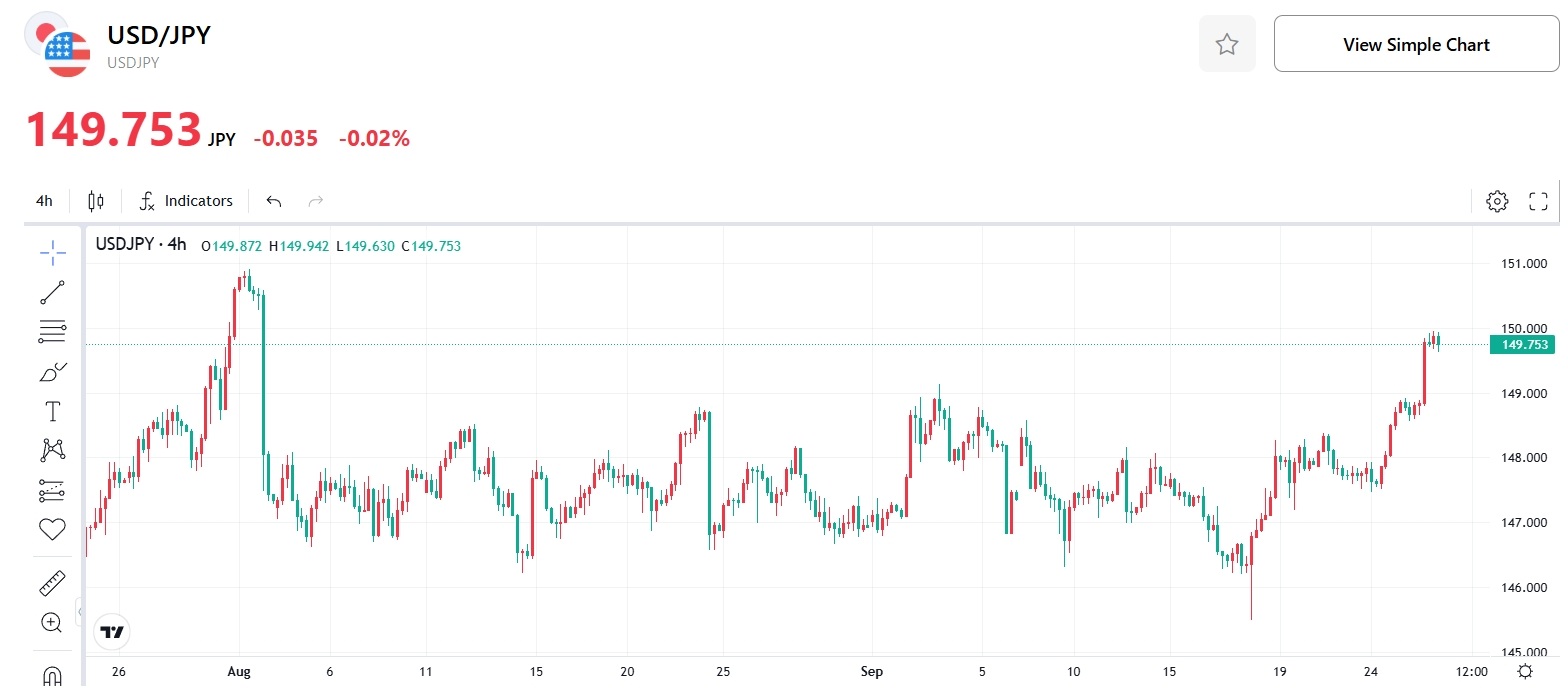Soft September Tokyo CPI Doesn’t Mean a Softer BOJ Stance as Yen Stabilizes

TradingKey - While stronger-than-expected U.S. Q2 GDP data pushed USD/JPY toward the psychological 150 level, weaker-than-expected inflation in Japan’s key early indicator — the September Tokyo CPI — failed to reinforce expectations of further yen weakness. Instead, the yen briefly strengthened after the report, reflecting traders’ nuanced, “not dovish” interpretation of the data.
Data released on Friday, September 26 showed:
- Tokyo CPI YoY: +2.5%, below the 2.80% forecast and down from 2.60% in August
- Tokyo Core CPI (ex-fresh food): +2.5%, well below 2.80% expected, unchanged from prior
- Tokyo Core-Core CPI (ex-food & energy): +2.5%, sharply down from 3.0% in August — a key gauge of underlying inflation
At first glance, these inflation readings — closely watched ahead of the Bank of Japan’s October policy meeting — could appear to undermine the case for another rate hike, as the unexpected slowdown in headline inflation and flat core print may weaken the urgency for tightening.
However, after the release, USD/JPY fell slightly, trading at 149.753, failing to extend gains driven by strong U.S. growth data. This reaction reveals that markets are reading deeper into the so-called “soft” Tokyo CPI report.

USD/JPY Exchange Rate, Source: TradingKey
Why the Market Isn’t Panicking
It’s important to note that temporary government policies aimed at easing household costs may have artificially suppressed the inflation figures.
Dai-Ichi Life Research Institute noted that aside from one-off factors, the data doesn’t signal a major shift — and should not stop the BOJ from considering another hike.
“This won’t push the BOJ, but it won’t make them hesitate either as factors are clear.”
Analysts pointed out that the main reason for the drop in the CPI was the expansion of free daycare services in Tokyo, which offset base effects from last year’s utility subsidies. Beyond this specific policy impact, there were no other major surprises in the report.
Underlying Inflation Still Sticky
Bloomberg economists said the soft Tokyo CPI won’t derail the BOJ’s path. The weakness reflects local policy effects in Tokyo, not a broad loss of inflation momentum.Underlying price pressures remain firm, with wage growth fueling price hikes in labor-intensive service sectors.
According to a Reuters survey last week, over 50% of economists expect one more BOJ rate hike in Q4, raising the policy rate from 0.50% to 0.75%.
Some economists argue that accelerating yen depreciation and rising asset bubble risks could push the BOJ to tighten policy sooner. If the impact of Trump’s tariffs becomes clearer in trade data and the Tankan survey, an October rate hike remains feasible.
Earlier this week, Makoto Sakurai, a former BOJ board member, reiterated that the BOJ could raise rates in October. As long as they focus on inflation, they can hike anytime.







